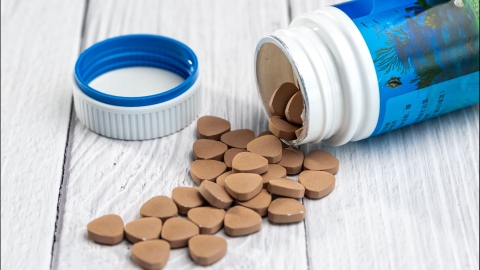What calcium supplements are good for the elderly to take for calcium supplementation?
When supplementing calcium, the elderly should choose calcium tablets that are easily absorbed and gentle on the gastrointestinal tract. Common options include calcium carbonate D3 chewable tablets, calcium gluconate tablets, calcium lactate chewable tablets, calcium citrate tablets, and vitamin D2 calcium lactate tablets. Detailed information is as follows:

1. Calcium Carbonate D3 Chewable Tablets: Contain calcium carbonate and vitamin D3. Vitamin D3 enhances calcium absorption. Being chewable, these tablets dissolve more easily and are suitable for the prevention and treatment of osteoporosis in the elderly. Use as directed by a physician.
2. Calcium Gluconate Tablets: Main ingredient is calcium gluconate. With a mild taste and minimal gastrointestinal irritation, they are ideal for elderly individuals with weak digestive function. Follow dosage instructions on the label or as prescribed by a doctor.
3. Calcium Lactate Chewable Tablets: Main ingredient is calcium lactate. Highly water-soluble and well-absorbed without requiring large amounts of stomach acid, making them suitable for elderly people with insufficient gastric acid secretion. Use under medical supervision.
4. Calcium Citrate Tablets: Contain calcium citrate, which is absorbed independently of stomach acid. Can be taken on an empty stomach or with meals, making them appropriate for elderly individuals with gastrointestinal disorders. Take according to the prescribed course under medical guidance.
5. Vitamin D2 Calcium Lactate Tablets: Composed of vitamin D2 and calcium lactate, these work synergistically to promote calcium absorption and help prevent calcium deficiency-related conditions in the elderly. Strictly follow medical advice when using.
Elderly individuals should take calcium supplements regularly and avoid taking them with strong tea or coffee. Daily intake can be combined with calcium-rich foods such as milk and soy products, along with moderate sun exposure to support vitamin D synthesis. If constipation or bloating occurs after taking supplements, consult a doctor promptly to adjust the treatment plan.




